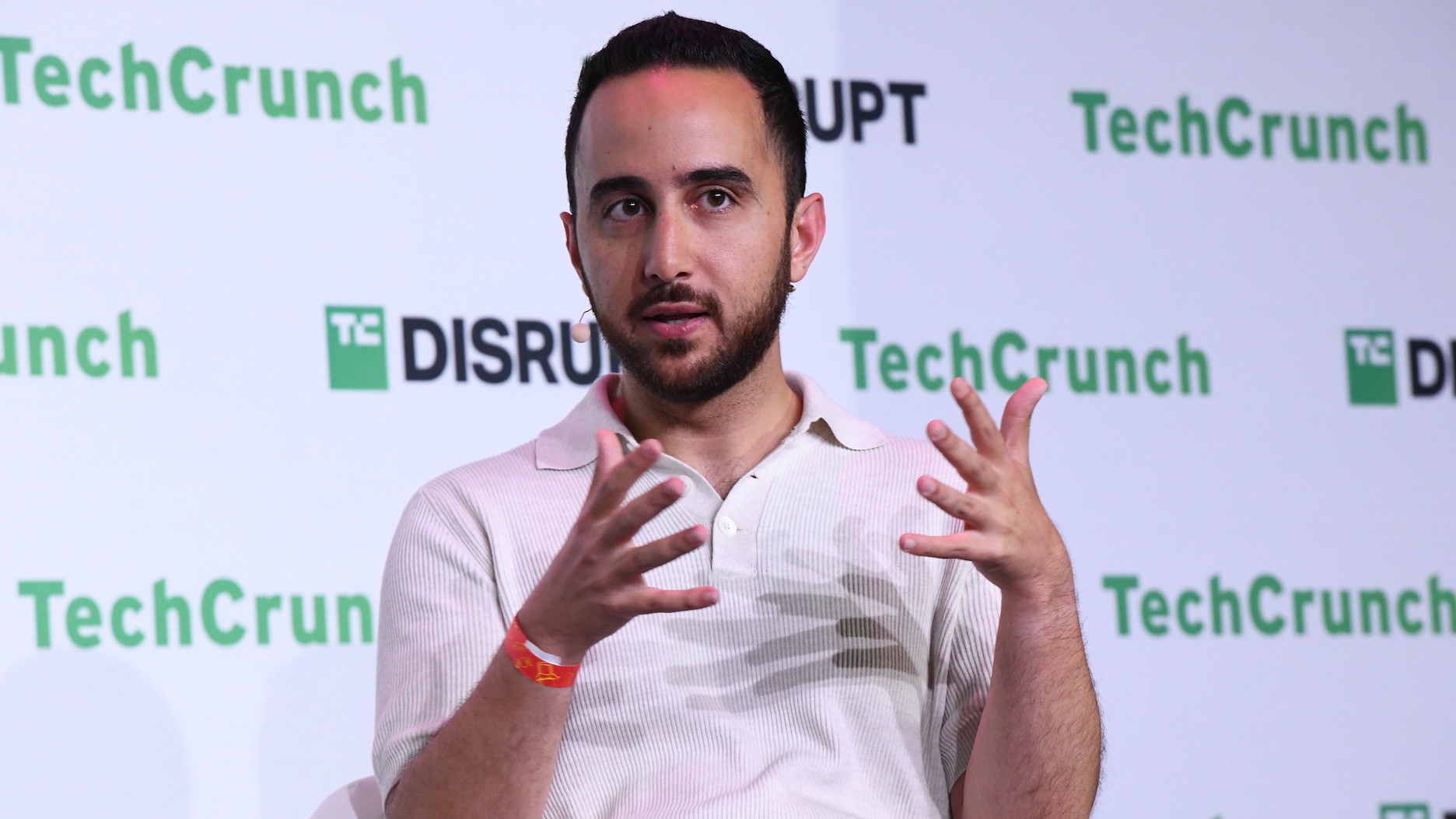
Greylock Partners unveiled two new endeavors Tuesday: A $1 billion early-stage fund — its 17th — and Greylock Edge, a program to support founders developing ideas into companies with early revenue and product market fit.
In keeping with the venture capital firm’s thesis, Greylock 17 will target pre-seed, seed and Series A founders in the areas of enterprise and consumer software, Greylock partner Saam Motamedi told TechCrunch. More than 80% of Greylock’s previous fund was invested at those stages.
Digging deeper into that, the firm “expects that every company will become an AI company,” so the new fund expands on a decade of investing in AI-focused companies across cybersecurity, infrastructure, SaaS, marketplaces/commerce, fintech and crypto.

Greylock partner Saam Motamedi at TechCrunch Disrupt 2023. Image Credits: TechCrunch
Meanwhile, the firm that has invested in some heavy hitters, including Airbnb, Discord, Figma, LinkedIn, Meta and Palo Alto Networks, is looking earlier now with Greylock Edge. The new program is designed to help founders and the earliest stages. The firm is custom-designing Edge for a handful of pre-idea, pre-seed and seed founders.
Founders work with Greylock partners to brainstorm and iterate on their ideas as they plan out their product market fit buoyed by fully flexible financing options; for example, a priced round or a SAFE note (simple agreement for future equity). In addition, founders will get access to early customers, design partners and help with initial team recruiting.
We spoke to Motamedi to get the scoop about the new fund and Greylock Edge.
The following was edited for length and clarity.
TechCrunch: Is this new fund in line with the timing of your other funds?
Motamedi: Definitely. We typically raise funds in three to four years. We announced Greylock 16 in September of 2020.
I know you’re Greylock and have been around for decades, but what was the fundraising environment like this time around?
Thanks for that comment. Given the work we’ve been fortunate to do with founders over our 60-year history, we have a very pristine and consistent LP base, for example, university endowments and nonprofit foundations — most of which have been with us for decades. When we began Greylock 17, our fund was spoken for and oversubscribed extremely quickly.
Having mainly invested in enterprise and consumer software, how have those two industries changed, and where do you see the flow of opportunity?
Both of those are large areas, and they’ve been highly fertile areas. We’ve been fortunate to partner with a number of companies in both areas. They’ve gone through their own arcs, waves and evolutions, and we’re sitting here in October 2023, so there will be future arcs. For example, if you look at mobile, you have the rise of consumer networks and social networks. We were lucky to be the early investors in Meta and LinkedIn. Then you had the marketplace wave, and we were lucky to do the early round in Airbnb. Then you had the rise of crypto, and we were investors in Coinbase. We’re also in Roblox and Discord.
Now you have a bit of a wave around new AI, AI experiences and how that can change consumers. For example, Inflection AI started in our offices. They have their product Pi, which is on the consumer side. On the enterprise side, you have the shift to the cloud, which was an important shift. We are partners with companies like Workday and Palo Alto Networks.
A second important shift has been around collaboration and empowering creators and builders. Figma is perhaps the most important company that’s been a part of that wave. We don’t call AI out as a sector because everything we do involves AI now. It is going to transform every aspect of the enterprise and consumer. We’re really excited about the AI wave, and if we look back on careers, we will have made a number of investments both in enterprise and consumer software in these AI first companies.
That’s a good segue to talk about Greylock Edge: What’s the group size that you’re initially looking for?
We don’t have a specific size, and also we don’t think of it in terms of groups. We will accept companies and founders on a rolling basis. There are no constraints but we will be very selective. It’s a very personalized program where you’re going to be working extremely closely with our partner team, so there’s a limit to the number of companies we can support.
Do you feel like you’re competing against anyone with this type of program?
I don’t feel like we’re competing against anybody. There are all sorts of offerings available to early-stage entrepreneurs. There are terrific incubators, accelerators and traditional venture capital funds. Our view is that we have the expertise of Greylock, having started with these companies from early on, and can we take those learnings and capabilities and put them in a program purpose-built for a small set of founders.
There are lots of firms investing in early-stage but not many investors who are willing to go into pre-seed. What makes that idea or pre-seed stage so attractive to Greylock?
One of my partner’s uses this analogy: Building a very large and important company is like building a skyscraper. You can’t build a skyscraper if you don’t get the foundation of the building. You can still build a three-story house, but you’ll never build a skyscraper. Our view is you may just be starting as a pre-seed founder, but there are foundational decisions you’re going to make — the market you choose, the product, the types of customers you serve, your first few hires. Ultimately, the founders making those decisions live and die by those decisions.
If we can work with you at that foundational stage to help you make the best version of those decisions, then we set the foundation to maximize your probability of building a skyscraper. We have the experience of getting involved at that pre-seed even earlier, and we believe that if we can partner with the founder and help them make those right foundational decisions, it will not just help them get the product market fit, but help them become a skyscraper.
Have a juicy tip or lead about happenings in the venture world? Send tips to Christine Hall at chall.techcrunch@gmail.com or Signal at 832-862-1051. Anonymity requests will be respected.






